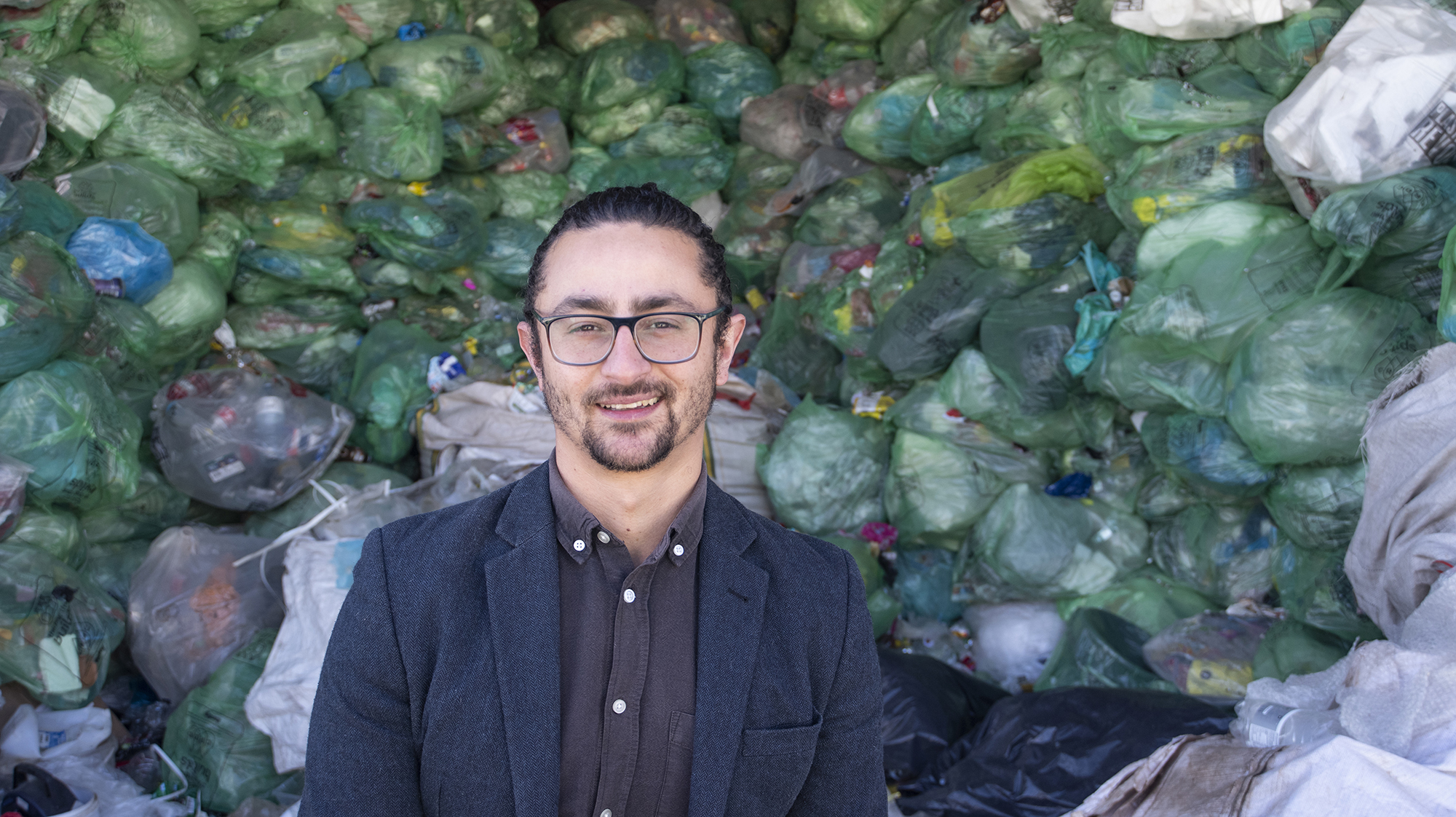A local and national government initiative is using the circular economy model to slowly transform under-resourced communities in Cape Town, where illegal dumping and waste accumulation is a perpetual problem, and change the relationship that children and the residents have with the waste.
Called the iThemba Phakama 4Ps (People, Public, Private, Partnership) project, it incentivizes fee-paying school students to donate waste collected from their families and local communities to their schools, where it establishes recycling centers which they then sort and sell mismanaged non-recyclable or difficult-to-recycle plastic waste to organizations.
Garbage collectors from these communities are also employed by the project to collect trash from area streets, households and businesses.
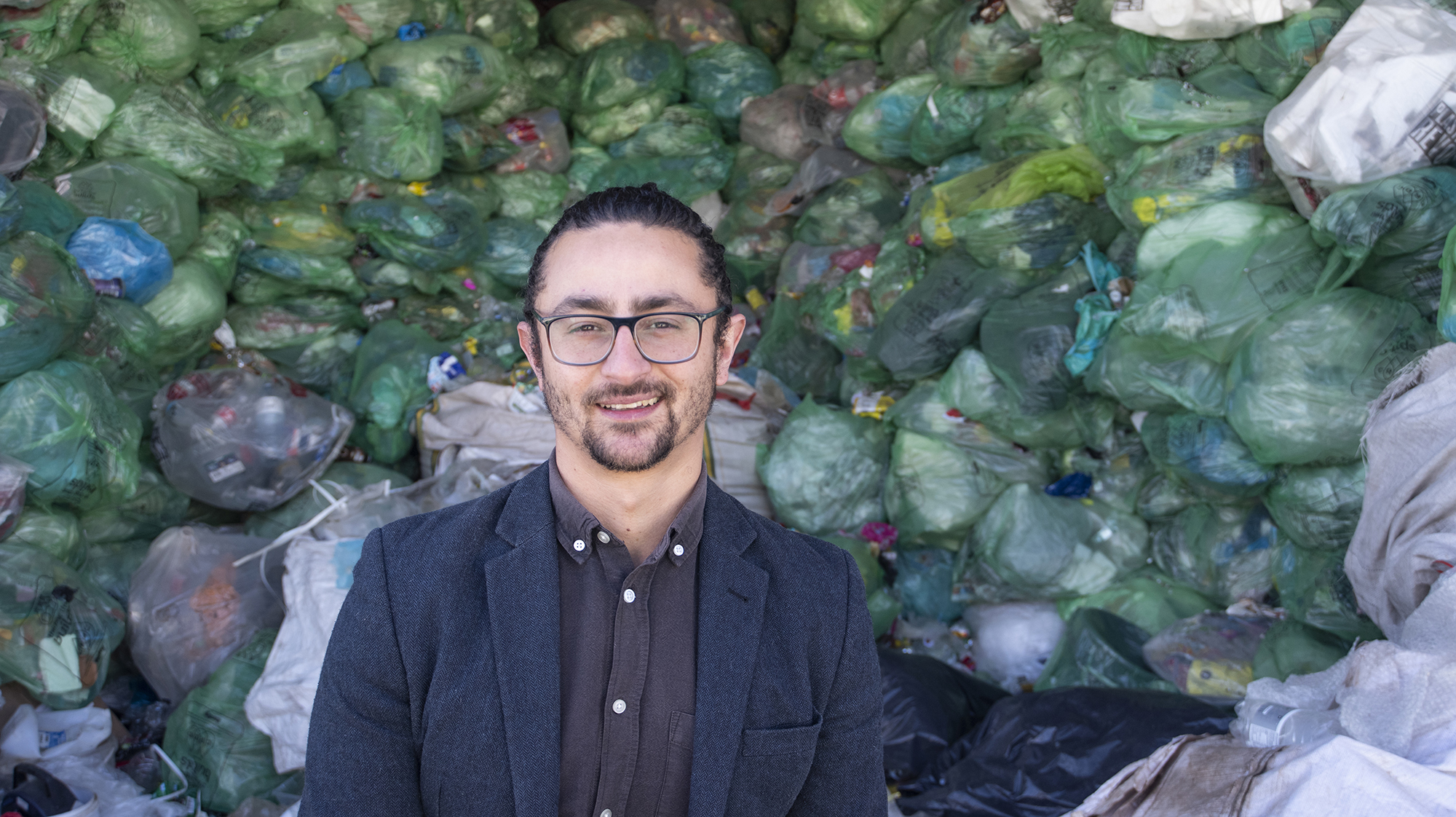
Keanan Reis, director of the Center for Regenerative Design and Collaboration. The organization is another cog that keeps the Ithemba Phakama 4Ps project going by supporting it through its Bag That Builds initiative, where they assign a rand value to every bag of plastic waste they collect. (Photo: Brenton Geach)
Waste organizations, such as the Center for Regenerative Design and Collaboration (CRDC), have banded together to support the program. THE The CRDC’s Bag That Builds initiative assigns a rand value to each 1kg bag of plastic waste (bag can contain mixed and dirty plastic of any kind) collected. This money goes back to free schools as an additional source of income that can be used for upgrades, food, or whatever the school requires.
But what does CRDC do with this waste and why is it eager to pay for it? THE waste organization provides an end-of-life solution for all plastic waste, using innovative technology to transform large amounts of non-recyclable plastic waste into RESIN8, an eco-aggregate. RESIN8 can be used in the production of concrete for in the building and construction industry sometimes the materials even go back into the buildings of the schools that supply the waste.

The Center for Regenerative Design and Collaboration provides an end-of-life solution for all plastic waste, using innovative technology that takes non-recyclable waste plastic and transforms it into RESIN8, an eco-aggregate. RESIN8 is used to produce concrete, which can then be reused for building materials. (Photo: Brenton Geach)
The iThemba Phakama 4Ps project is an initiative of the The Western Cape Departments of Environmental Affairs (DEA) and Development Planning (DP) and the National Department of Forestry, Fisheries and the Environment are now expanding and partnering with more schools in under-resourced communities.
The project piloted its circular economy model at Webner Street Primary School, a free government school in Ravensmead, Cape Town. The model has since been replicated in multiple schools in Mitchells Plain, Athlone and Langa.
Birth of an idea
Ron Mukanya, director of sustainability at DEA and DP, was inspired by an article on News24 about 500 fed up residents who had signed an online petition demanding proper fencing for the school sports field that had been vandalized and complaining about the growing amount of litter on the field, which was degrading the neighbourhood.
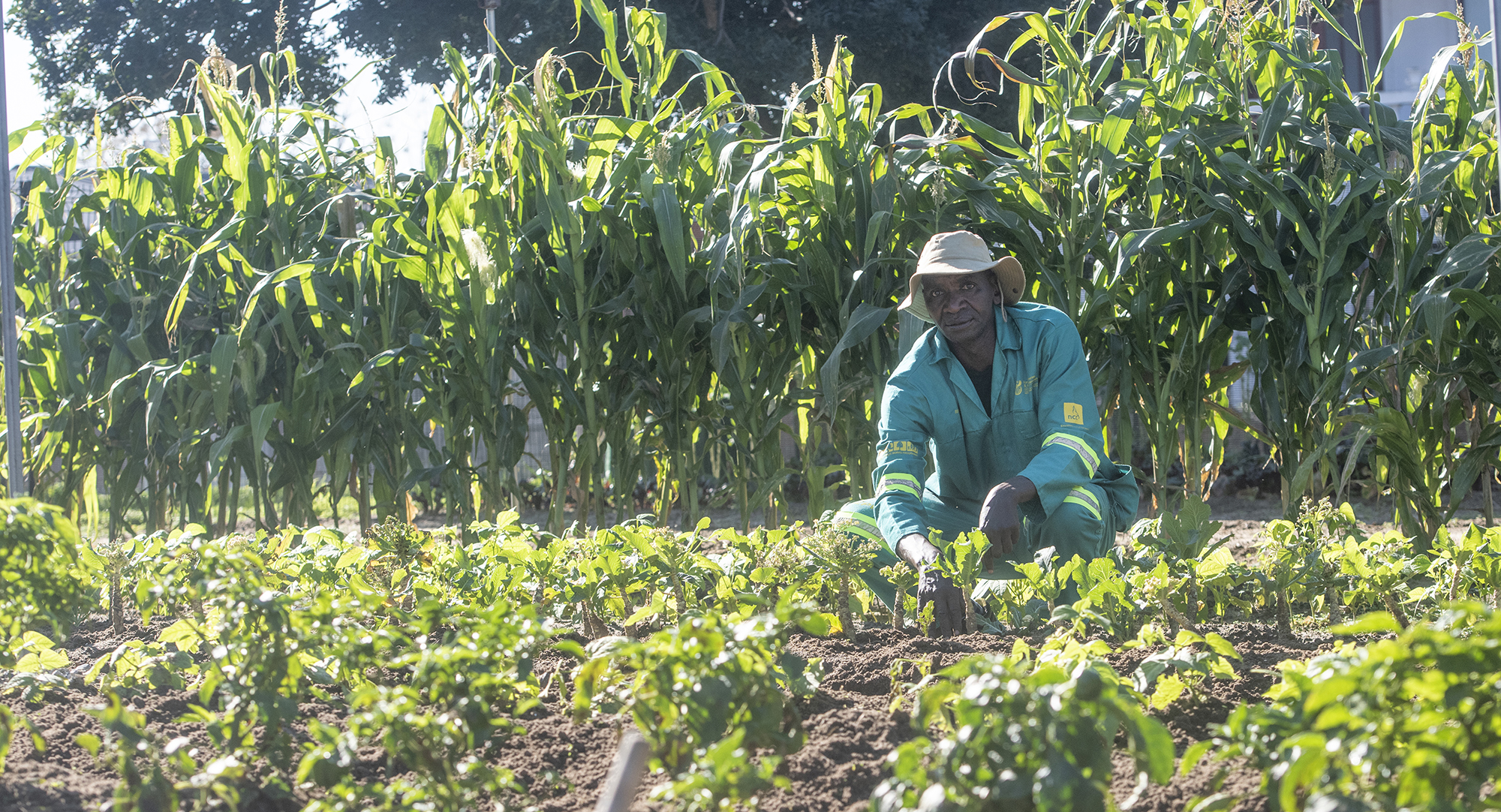
At the heart of Webner Street Primary School is a vegetable garden funded entirely by the schools’ recycling initiative. The garden is used to provide vegetables for the school feeding programme. Gardener John Makwanda looks after the garden throughout the week. (Photo: Brenton Geach)
Mukanya decided to use the school as a case study for DEA and DP and turn it into a local community based recycling center. The school underwent a dramatic transformation to become the successful recycling center it is today. Using the funds raised from recycling, the school established a school garden which uses composted organic waste from the school cafeteria to grow vegetables, which enabled the school to feed another 100 pupils.
Ashley Damons, project manager of Ithemba Phakama 4Ps, said: When the project started at Webner Street Primary, everyone was a little skeptical as conditions at the school hadn’t changed for years. But when we started, the department cleared and fenced off the field. We did a massive cleanup to get the community involved. In all of this, the best prepared to contribute were the students. It’s amazing how quickly they picked up on the concepts of source separation and recycling,
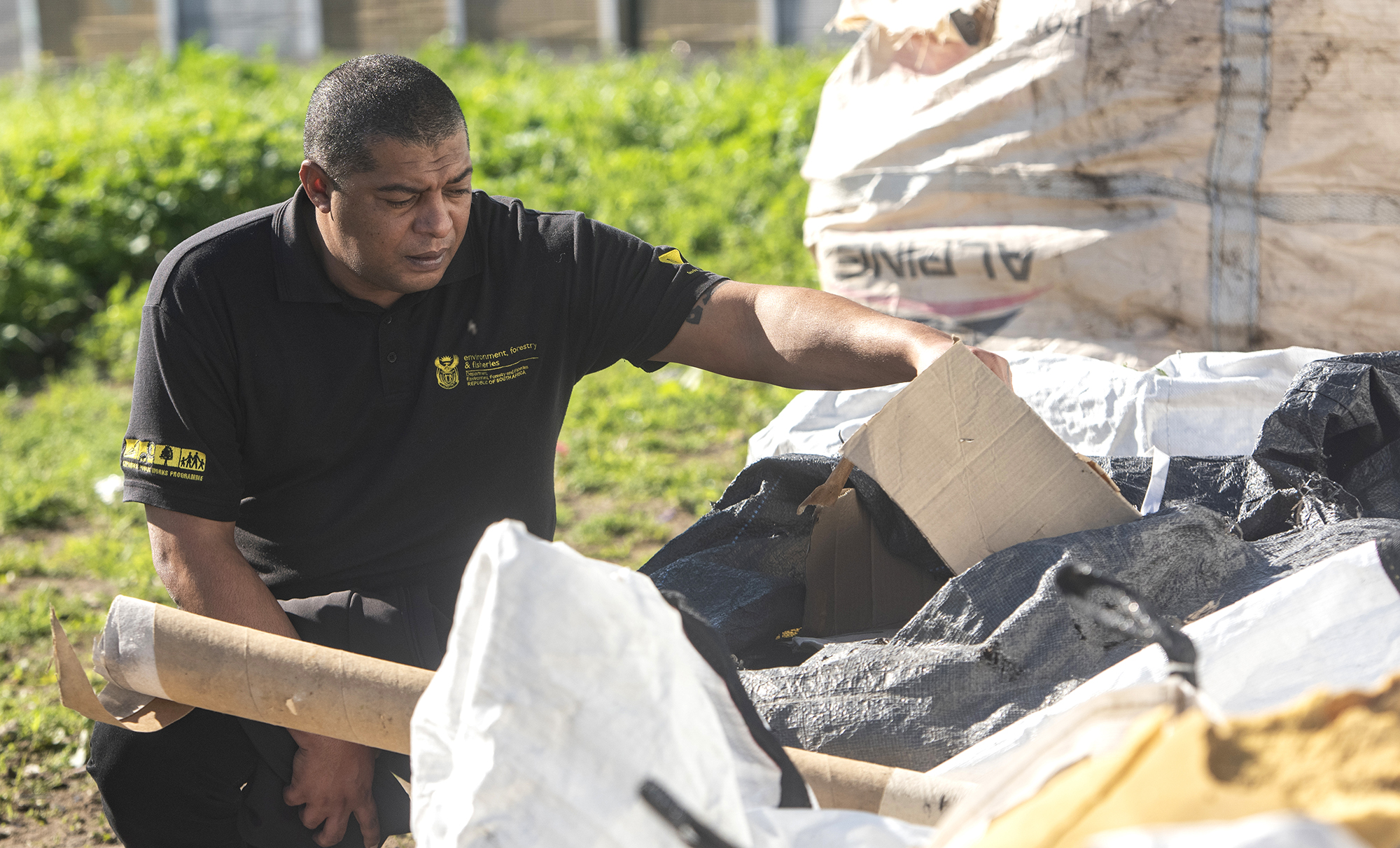
Ashley Damons, project manager of the Ithemba Phakama 4PS initiative. (Photo: Brenton Geach)
Damons said the Webner Recycling Center was perhaps the only truly circular economy case study that showed real results in the region. This year the team also won Service Excellence awards from the Western Cape Government.
Mukanya said: Recycling is not easily accessible and having the convenience of dropping off recyclables at a local school or community center makes it convenient to recycle. Like many coastal areas, particularly in developing economies, the Western Cape currently faces challenges related to solid waste, including single-use plastics.

(Image: Provided)
He said levels of illegal dumping were unacceptably high and many informal and low-income communities were still not disposing of plastics responsibly.
As a result, significant volumes of plastic waste end up in our waterways, from where this waste flows into the ocean and impacts the fishing industry and tourism, which are the largest sources of income in our province. Plastic waste also provides breeding ground for waterborne diseases affecting the most vulnerable communities, he said.
This model in one way or another addresses all these issues by providing employment opportunities for waste collectors in these areas.
Meeting of minds
This was stated by Kyle Dewar, spokesman for Polyco, one of the organizations involved in the project When a community realized the value of recycling, there was a meeting of minds about how to recycle and separate waste at the source so it could be collected and sold to recyclers further along the value chain.
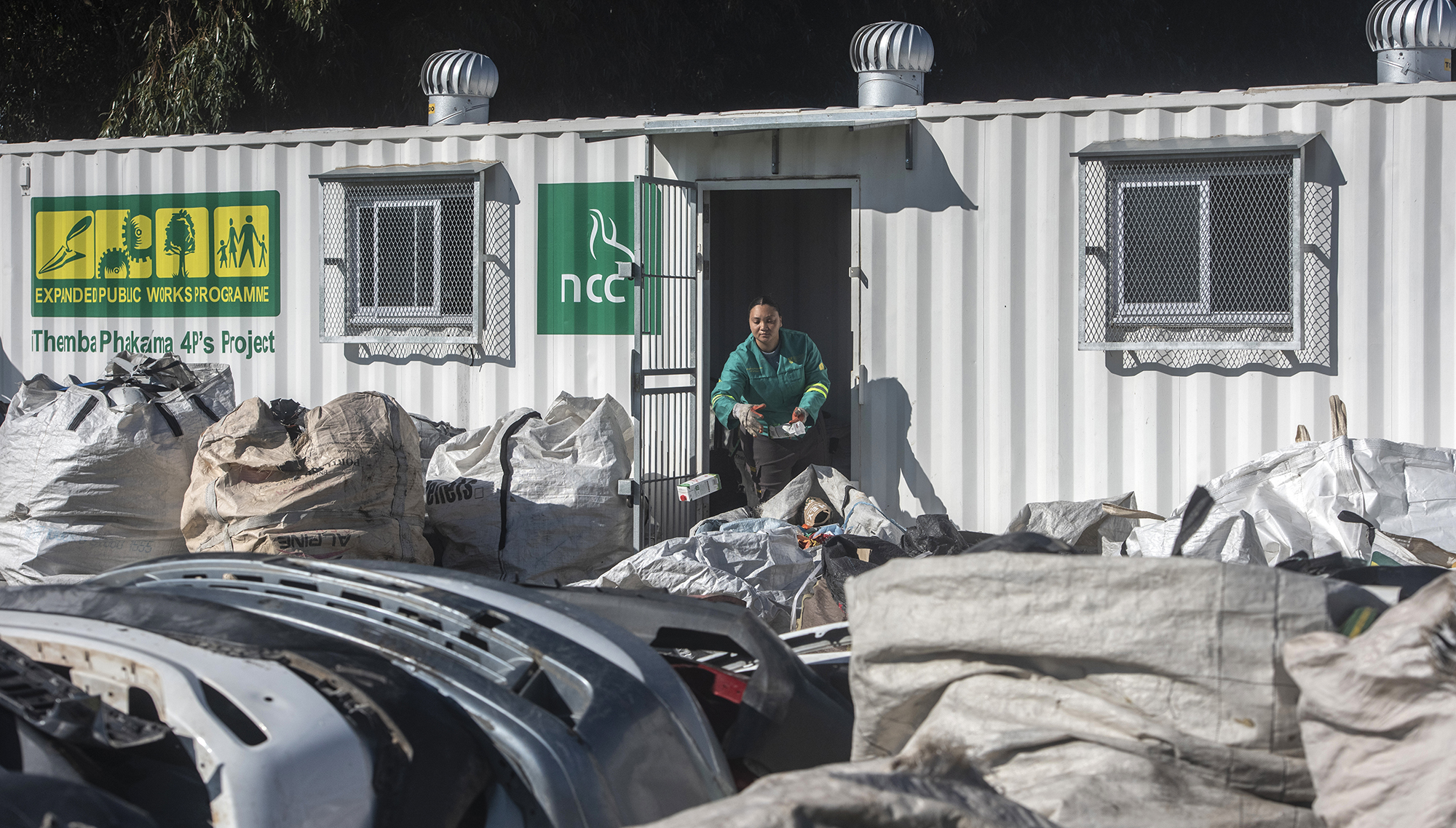
The recycling area of Webner Street Primary School in Ravensmead, Cape Town. (Photo: Brenton Geach)
This benefits these communities from a socio-economic perspective as well as having a positive environmental impact. We see these communities getting involved as they now know they can create revenue opportunities while educating and cleaning up the environment and their neighborhoods, this is the sweet spot we want to hit. This in turn negates the need for illegal dumping grounds and builds communities, Dewar said.
Keanan Reis, director of the CRDC in South Africa, said the organization is also assisting the project with additional sorting and transport costs where needed. He said he collected transaction data at each hub, which, after a few months, would show how much bags were brought into each hub and the revenue paid to collectors. The data is crucial in terms of reporting to current and future sponsors of the CRDC.

A datasheet from the Kudoti recycling platform. (Image: Provided)
Reis said CRDC’s Bag That Builds initiative works on a sponsorship model. The Alliance to End Plastic Waste is a partner of the CRDC both locally and globally, sponsoring the first 12 months of the initiative. DM
To read all about Daily Mavericks’ recent The Gathering: Earth Edition, click Here.

#RECYCLING #BOOM #Cape #Town #students #turning #trash #cash #improve #schools #clean #neighborhoods
Image Source : www.dailymaverick.co.za

